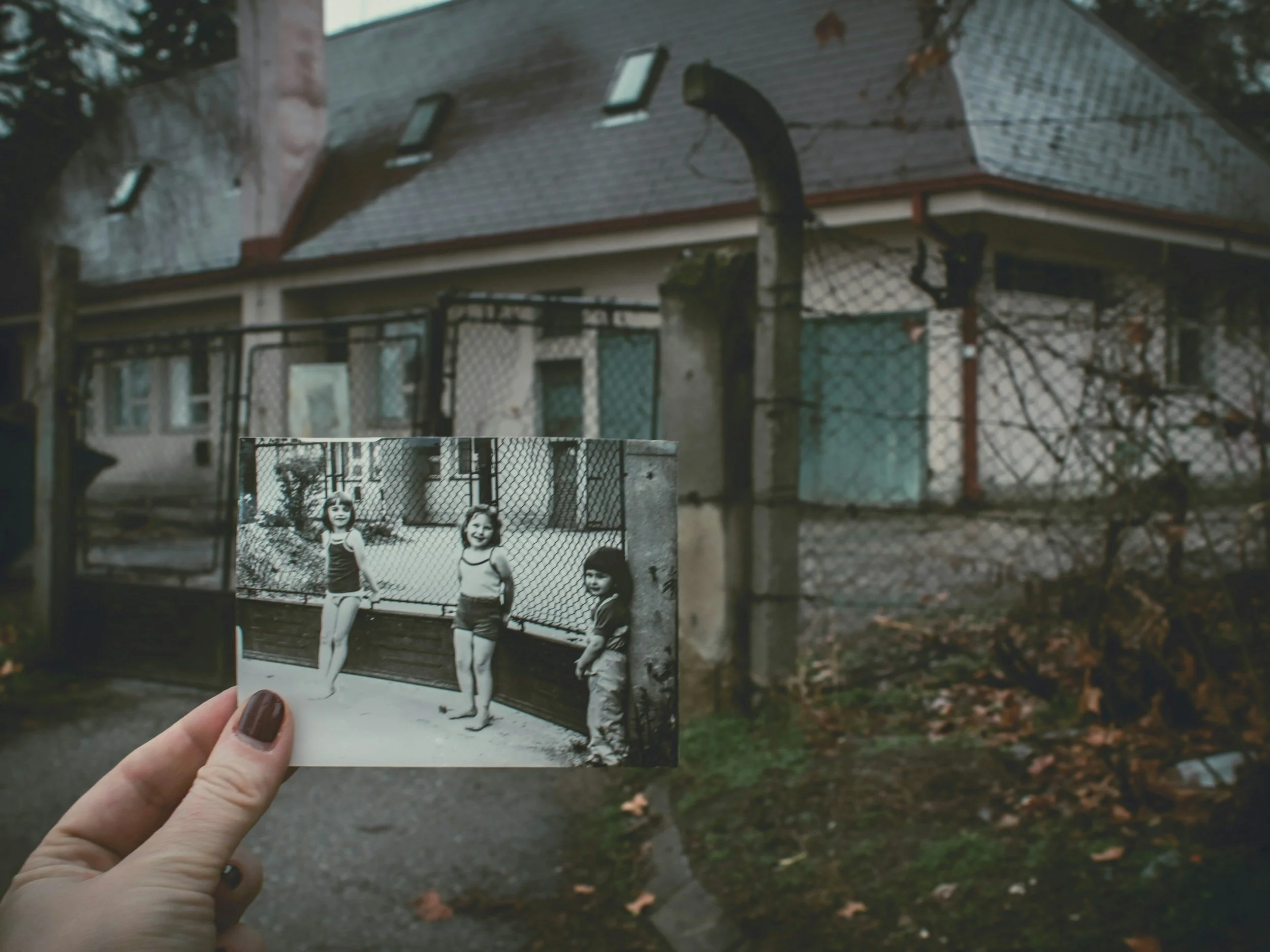When the Holidays Stir Up Old Wounds:
Staying Sober and Centered Around Family
You can’t always change your family’s patterns, but you can protect your peace within them.
The holidays tend to magnify everything—joy, gratitude, nostalgia, and sadly, pain. For individuals and families in recovery, this season can feel like an emotional rollercoaster. What should be a time of connection often brings up old memories, family habits, and unresolved wounds.
Staying sober and balanced during the holidays isn’t about avoiding discomfort; it’s about recognizing triggers, caring for your needs, and acknowledging the progress you’ve made. It can also be an opportunity for continued personal growth.
Understanding the Emotional Landscape of Family Gatherings
Families function as systems—interconnected networks where each individual's behavior influences the whole. Over time, predictable roles and patterns develop to maintain stability within the system. When someone grows or establishes new boundaries, the system often reverts to familiar ways, drawing everyone back into old roles.
Common examples:
The Peacemaker feels pressure to keep harmony at any cost, even by silencing their own needs.
The Caretaker overextends to manage everyone else’s comfort, neglecting personal limits.
The Quiet Observer stays silent to avoid conflict, even when something important needs to be said.
These patterns can keep short-term calm but limit personal growth and recovery. The first step to change is awareness: notice when an old role is triggered, name it (“I’m sliding into Peacemaker”), and choose a different response—set a boundary, ask for a pause, or step outside to reset. You may not be able to change your family’s dynamics, but you can protect your peace and act in line with your recovery.
The nervous system remembers what the mind tries to forget
Grounding Strategies for the Holiday Season
Preparation is protection. By incorporating a few small practices before and during family events, you can help yourself stay centered and maintain emotional balance amidst potential stress or chaos.
Set intentions, not expectations. Decide what you want to bring into the space—calm, patience, compassion—and release the need for everything to go perfectly.
Have an exit plan. Give yourself permission to leave if a situation becomes triggering or unsafe for your recovery.
Use sensory grounding. Deep breathing, stepping outside for fresh air, or holding something tactile (like a small stone or bracelet) can help reset your body’s stress response.
Reach out for support. Stay connected with your sponsor, therapist, or recovery community throughout the holidays. A simple check-in can make all the difference.
“Every time you respond differently, you rewrite your story”
Navigating Alcohol and Unhelpful Dynamics
For many in recovery, the hardest part of the holidays isn’t temptation—it’s feeling uncomfortable. Being around alcohol or people who don’t understand recovery can make you feel isolated.
Plan ahead for these scenarios:
Bring your own nonalcoholic drink so you always have something in hand.
Stay close to trusted allies who support your boundaries.
Permit yourself to decline events or conversations that jeopardize your peace.
Maintain your regular recovery routines, such as morning meditation, working the steps, attending meetings, and talking to your sponsor.
Have a set of prepared responses for any awkward questions that might come your way.
Remember, You are not obligated to explain your recovery to anyone. Protecting it quietly and firmly is enough. Your privacy is your right, and no one else needs to understand your journey. Focus on your well-being and trust your instincts to keep your recovery secure.
Reframing Old Wounds as Invitations to Heal
Triggers aren’t signs of weakness—they’re signals that something within you still needs care. Recognizing these triggers allows you to address underlying issues and promote personal growth.
When an old hurt surfaces, ask yourself:
What memory or belief is being activated right now?
What does this part of me need—comfort, space, or understanding?
How can I care for myself instead of criticizing myself?
The goal isn’t to eliminate emotional pain; it’s to move through it with awareness and compassion. Every time you respond differently, you rewire your nervous system toward safety, resilience, and adaptability. The nervous system, which includes the brain, spinal cord, and a complex network of nerves, plays a crucial role in how we perceive and react to emotional experiences. By consciously choosing different responses, you can reshape neural pathways, fostering a sense of safety and emotional regulation that becomes more natural over time.
Every time you respond differently, you rewrite your story
Creating New Traditions That Support Your Recovery
Starting new activities can be a fun way to introduce fresh experiences to yourself and your family. By trying some new ideas, you might not only develop new activities but also ease the nervous tension that your friends and family may feel. Healing sometimes involves redefining what the holidays look like.
You have permission to create new rituals that support your well-being: for example,
Play a family game around the kitchen table
Attend a holiday recovery meeting or party
Participate in a volunteer activity like serving food at a local shelter
Go outside and engage with nature by taking a walk, flying a kite, participating in a sport, tossing a ball, or doing other activities.
Remember, when you focus on recovery, you redefine celebration as connection, not consumption. The holidays were never meant to be judged by spending or perfection—they are meant for reflection, gratitude, and a sense of belonging. When you return to that purpose, every gathering becomes more about being present.
“New game twist on White Elephant or Dirty Santa - Gratitude Grab - Instead of exchanging gifts, everyone writes something they’re grateful for on a piece of paper and places it in a hat. Each person then draws one and guesses who wrote it — followed by sharing a short story about something they’re grateful for this year.”
Turning Awareness into Growth
As you observe old wounds or emotional triggers surface, try to see them as valuable information rather than setbacks. These moments reveal where healing still requires your attention. Share what you notice with your peers, sponsor, therapist, or support group—places where insight can turn into growth. Journaling or writing about your reactions can also help you understand what came up. And remember, it’s perfectly okay to delay processing deeper feelings until after the holidays. Sometimes the healthiest choice is simply to get through the season with stability, then return—when you’re ready and supported—to explore and address what surfaced.
“Triggers aren’t signs of weakness—they’re invitations to heal.”
Closing Thoughts
Each year, you show up differently; you gently shift the pattern. You teach your body, your mind, and your family that the holidays don’t have to revolve around substances or old, stressful dynamics. Staying sober and centered isn’t about perfection—it’s about being present. Every time you choose peace over chaos, you reclaim more of your power. And remember: you have permission to leave early, decline an invite, or pause a conversation—your recovery comes first. Small choices accumulate; over time, they form new traditions.
I hope you find this information helpful. However, I must also mention that the advice given is for informational purposes only. It is not intended to diagnose or treat any condition. I always recommend that you consult with a licensed professional in their field of expertise.
If you believe this article will benefit someone else, please share it and email me if you have a topic you would like me to address. The email address is linked above.
If you found this topic interesting, you may want to explore one of the following options…
About the Author
Janice V. Johnson Dowd, LMSW, is a speaker, writer, and family recovery specialist. She is the author of Rebuilding Relationships in Recovery (North Atlantic Books), a guide for families seeking connection, trust, and healing after addiction. Learn more at janicejohnsondowd.com.


